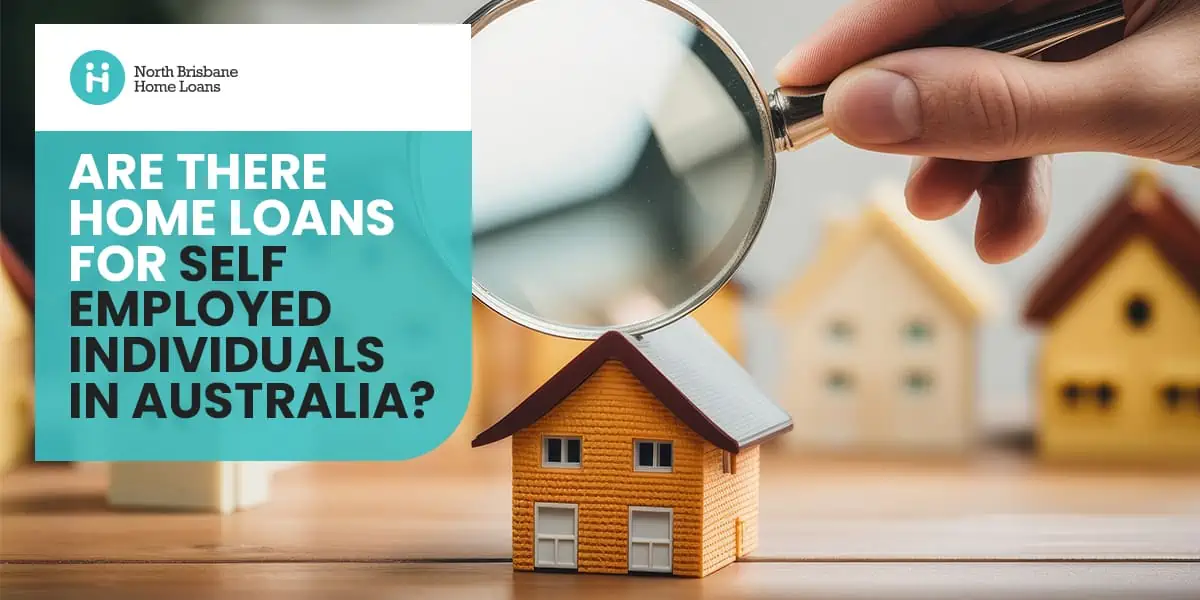Are There Home Loans for Self Employed Individuals in Australia?
Are you a small business owner wondering about home loans for self employed people in Australia? If so, you’re certainly not alone. According to data from the Australian Small Business and Family Enterprise Ombudsman, 1.6 million Australians are now self employed, accounting for 60% of small businesses nationally.
While being self employed comes with a great range of perks (being your own boss, working according to your own schedule, etc.), it also comes with a potential issue: it can be more difficult to secure home loans for self employed people in Australia.
If this is the situation you currently find yourself in, there’s no need to panic. The path to homeownership for self employed individuals can be successfully navigated with the right advice and help.
Why is it challenging to get a mortgage for a self employed person? What information do you need to supply to get an application approved for self employed home loans? And how can you find the best home loans for self employed individuals?
Why Obtaining a Mortgage for Self Employed Individuals Can Be Challenging
You may be asking: Why is it so difficult to get a mortgage for self employed home buyers?
It’s an unfortunate fact that 90% of all new businesses will fold or cease trading within 5 years. Because of this, home loans for self employed borrowers are generally a straight assessment of risk. If you want a lender to give you hundreds of thousands of dollars to buy a home, then you first need to prove that you can pay that money back over the long term. This means you need to demonstrate the stability and ongoing viability of your small business.
A Home Loan for a Self Employed Person: Understanding the Lending Criteria
Mortgages for self employed individuals will typically be divided into two distinct categories: those that have been operating for more than 2 years and those that have been operating for less than 2 years.
- Operating for More Than 2 Years
If you’re self employed, but can prove that you’ve been in business for at least 2 years, then your application will be classified as lower-risk. Essentially, if you have the necessary paperwork for two full financial years (and you operate in profit), then you can usually qualify for a home loan, just like someone who receives a salary from an employer.
- Operating for Less Than 2 Years
If you’ve been operating your business for less than 2 years and you want to apply for a self employed home loan, then you will face stricter lending criteria. For example, you may need a larger deposit, and you’ll likely be charged higher interest rates to offset the perceived risk (normally 1–5% per annum more expensive than mainstream interest rates).
To find out more about lending criteria for self employed home loans, talk to an experienced mortgage broker.
What Documents are Required for Self Employed Home Loans?
When applying for a self employed mortgage, you’ll typically need to provide a combination of the following documents:
- Business Activity Statements (BAS).
- Proof of GST registration.
- Bank statements for business and personal accounts.
- Proof that you have been self employed in the same industry for at least 1-2 years (depending on the lender).
- Proof of ABN registration.
- Business financial statements (balance sheets, profit and loss statements, etc.).
- Australian Taxation Office (ATO) income tax returns and Notice of Assessments.
- Evidence of deposit or available equity.
If you’re not in a position to provide all of the necessary documentation, you may find a low doc home loan for self employed individuals to be more suitable.
What Size Deposit Will You Need for Self Employed Home Loans?
When it comes to mortgages for self employed individuals, the size of the deposit you’ll need will very much depend on your choice of lender. At the very minimum, you’ll need to have saved a deposit that is equal to 5% of the total property value. However, if your deposit is less than 20% of the purchase price, you will also be charged a fee for Lenders Mortgage Insurance. Ultimately, the bigger the deposit, the more positively the lender will view your application. The better your application looks, the more likely you’ll be to secure great terms and a competitive interest rate.
Mortgages for Self Employed People: Further Tips and Advice
If you’re still feeling concerned about your eligibility for a self employed home loan, then there are several practical steps you can take. Implementing these suggestions will help to minimise any potential roadblocks that you might otherwise encounter as a self employed borrower.
1. Keep Detailed and Up-to-Date Financial Records
It’s imperative that you keep accurate records of both your business and personal finances. Having well-organised and up-to-date financial records will streamline the application process and prove your financial stability.
2. Demonstrate Consistent Income
You’ll need to show the lender that you have a consistent and reliable income stream. Steady income reassures lenders that you’ll be able to meet your monthly mortgage repayments.
3. Minimize Debt and Manage Credit Responsibly
Far far away, behind the word mountains, far from the countries Vokalia and Consonantia, there live the blind texts. Separated they live in Bookmarksgrove right at the coast of the Semantics, a large language ocean.
4. Build a Strong Deposit
Having a higher deposit (ideally 20% or more) can significantly improve your chances of loan approval. A larger deposit may also lead to more favourable interest rates and loan terms.
5. Seek Professional Advice
Consult with professionals, including accountants and mortgage brokers, early in the process. An experienced broker, particularly one with expertise in self employed home loans, can help you choose lenders that are more likely to understand and accommodate your unique financial situation. Consulting with your accountant prior to the end of the financial year can ensure your financial records are in order and optimised for a successful mortgage application.
Talk to a Broker About a Home Loan for a Self Employed Person
At North Brisbane Home Loans, we understand the unique financial considerations associated with mortgages for self employed persons. Our team is dedicated to providing expert advice tailored to the specific circumstances of each individual. This means we’ll only offer advice that is in your best interests. We’re committed to guiding self employed borrowers through the process of obtaining a home loan, from initial consultation right through to settlement.
To find out more about home loans for self employed individuals, contact the team at North Brisbane Home Loans today.








